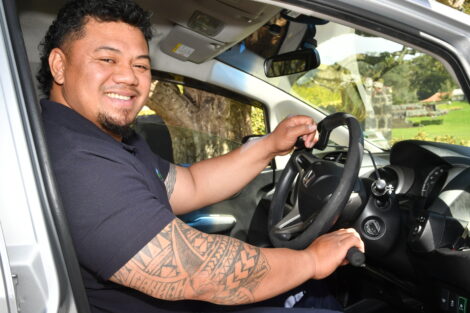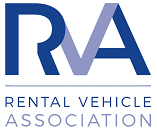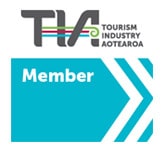ACC Transport Support
 If you have an injury that is covered by ACC, and it’s restricting you from driving your own vehicle, it can feel like you’ve lost your independence. This is where understanding what help and support is available from ACC can be a game-changer.
If you have an injury that is covered by ACC, and it’s restricting you from driving your own vehicle, it can feel like you’ve lost your independence. This is where understanding what help and support is available from ACC can be a game-changer.
The My ACC app can be a great place to start. For many, it’s a quick, efficient and easy way to manage your support and get what you need. But don’t be afraid to pick up the phone to ACC, especially if your case is a little outside the norm or you can’t see how your needs are fully covered within the app. Knowing what to ask for can really help, so we’ve put a few tips together below, to guide you through the process and ensure you get the support that’s right for you.
ACC Supports available
If your injury is covered by ACC you may be eligible for help with the following:
- Transport support for travel related to treatment and rehabilitation
- Mobility aids and equipment to help with an injury and keep you independent
- Home help for daily tasks that you can no longer do and have no-one to help with
- Income support or compensation if you’re unable to return to work straight away
- Counselling and therapy after a physical injury
- Culturally-responsive support with Hāpai. Hāpai is currently available to kiritaki Māori who have experienced serious or complex injuries.
Go to this ACC support page for more information.
Transport help from ACC:
If your injury is covered by ACC and you cannot safely drive yourself due to your injury, you may be eligible for ACC ‘transport supports’. These involve financial help you get around, including getting to and from recovery and specialist appointments. Also, in some cases, you might need transport to and from work, and help with transport for dependents who are in your care.
There are several different transport supports ACC might grant you:
- Taxis for getting to recovery appointments and work
- Mileage reimbursement for transport via private vehicle, or by friends and family
- Reimbursement of public transport costs for travel to recovery appointments
- Driver companion services like Driving Miss Daisy etc.
- Rental of a modified vehicle, like a hand-control car or a wheelchair-accessible vehicle (more about this below)
- ACC will sometimes cover accommodation and air travel if it is agreed it is the best way to travel to treatment.
To understand what you might be eligible for visit this ACC page.
The Alternative to Taxis
There are a lot of benefits to having a modified rental vehicle that allows you to drive when injured. And several reasons why ACC may consider funding one for you:
- You need to travel significant distances to work or study
- Employment that involves a lot of travel such as client visits, meetings at different locations or working on site
- You work shifts or unusual hours when taxis or public transport aren’t practical
- You’re the primary caregiver for dependents and need to do school runs or errands
- Multiple ongoing appointments are needed for rehabilitation, physio, or specialist care
- You live in a rural or other area with limited taxi or public transport options.
- You have a long term injury and your private vehicle is no longer suitable
A modified rental vehicle will solve all these issues and give you a whole different level of flexibility and freedom. So if you have long commutes, need flexibility throughout the day, have appointment in different places or have caring responsibilities, it could well be be your best bet.
Understanding your Transport Needs
If you feel that a taxi or public transport service is not going to meet your ongoing needs while you recover, consider asking for a Freedom Mobility modified rental vehicle. Not all ACC consultants will be aware that a hand-control car is an option for short-term injuries, so you may need to ask for us by name. We are an approved ACC Service Supplier. If your consultant is unsure of a hand-control option for a short-term injury, you can ask them to give us a call or you can send them a link to our website.
For longer-term injuries, ACC consultants will be aware that rental vehicles, both self-drive and passenger-vehicle options, are available. We provide rentals for both short-term and long-term leases.
When ACC looks at your case they’ll most likely consider:
- How much taxis might cost for your day-to-day needs
- Whether public transport can reasonably get you to where you need to go, and if it’s an option with your injury
- Whether it’s realistic for friends or family to help out
- How often you need to travel, the distances you need to travel, and why.
Be open and specific about:
- What you need transport for (e.g. work, medical, caregiving duties)
- How often and how far you travel.
- You can use these taxi fare calculators to work out how much each of your trips might cost:
- For Auckland, Auckland Co-op Taxis
- For the rest of New Zealand, Taxi-Calculator – Get your Taxi Fare now
- For more accurate taxi pricing consider calling your local taxi company. ACC do have contracted taxi operators who run on a reduced fare for ACC clients, so the above won’t give you an exact picture of what ACC would pay but it’s a good starting point.
- What transport options you’ve tried or considered, including what won’t work and why.
How it works with ACC
We work with ACC regularly and can help by:
- Providing quotes for short-term and longer-term rentals
- Helping to decide what types of modifications you might require
- Understanding what vehicle will best suit your needs considering the number of passengers, the amount of equipment you need to stow in the vehicle, etc.
If ACC approves your rental, we deliver the vehicle wherever you are in New Zealand and provide expert tuition for everything you’ll need. We’ll also run through any equipment in the vehicle that you will need to use, so you’re confident and safe with your rental vehicle.
What’s the best option for you?
Every injury and situation is different. So which form of transport support will suit your you best requires a bit of consideration. So, get in touch. We’re happy to talk through your situation and help you understand what’s best for you. And, if that is a modified vehicle, we can help guide you through the process.
Disclaimer: The information provided on this page is based on our interpretation of publicly available content from the ACC (Accident Compensation Corporation) website, as well as insights drawn from past customer experiences. While we strive to ensure accuracy and clarity, this content is not intended to replace official information from ACC. For the most current
Frequently Asked Questions
See below for the answers to the questions we get asked most frequently using the information on ACC’s website. If the question you were looking for isn’t here, flick us an email at [email protected] or call 0800 864 2529 and we will do our best to answer your ACC related questions.
ACC covers a wide variety of injury related costs. They may assist you to pay for the costs related to your healing or rehabilitation process. This could include payments towards transport costs, medical bills, treatment, help at home/work and help with your income.
Am I Covered By ACC?
Most injuries are covered by ACC. ACC operates under a no-fault cover scheme which means it doesn’t matter when you were injured or who was at fault, ACC will cover your costs so long as the injury falls under their legislation.
ACC may cover the following
- sprains or strains – such as the ankle, back, knee or shoulder sprains
- dislocations
- fractures
- wounds – cut, broken or bruised skin
- Serious injuries and disabilities
- burns
- dental injuries
- hearing loss
- concussion and loss of consciousness.
- an injury directly caused by treatment from a registered health professional
- Conditions that come on gradually from work
- Mental injuries (caused by a physical injury already covered by ACC).
- Dental injuries caused by an accident, sporting injury or as a result of medical or dental treatment.
- Sexual violence support
ACC does not cover:
- illness, sickness, or contagious diseases
- stress, hurt feelings or other emotional issues (unless linked to a covered injury)
- conditions related to ageing
- most hernias
- injuries that happen over time (unless a workplace activity is the cause)
- damage to items that don’t replace body parts ex hearing aids, glasses, pacemakers, gastric bands ect.
- if you have appendicitis and need an emergency trip to the hospital
- you get skin burn from the sun, wind or snow
- unexplained back pain
If you are unsure if your injury is covered, please contact your doctor, physio or local healthcare provider to advise. If they think you will be covered, they can make a claim to ACC on your behalf. For more info : https://www.acc.co.nz/im-injured/what-we-cover/injuries-we-cover/
Easy, just follow these simple steps
- Visit Your Healthcare Provider
- Ask your healthcare provider to make a claim
- Pay for part of your appointment
- ACC will contact you to confirm if your claim has been approved
- Explore ACC Support Options including transport, help at home, equipment and financial support if you cannot work or have a permanent injury.
More info: https://www.acc.co.nz/im-injured/what-to-do/
If covered, ACC is obligated to help with your transport costs and may cover the cost if a rental from Freedom Mobility. Call ACC or your coordinator and ask about your transport options. You can request a Freedom Mobility vehicle from ACC and send them one of our quotes. If approved, we would get the car to you within a week of the approval. If you are struggling with this process, give us a call. We are happy to help. https://www.acc.co.nz/im-injured/types-of-ongoing-support/transport/




